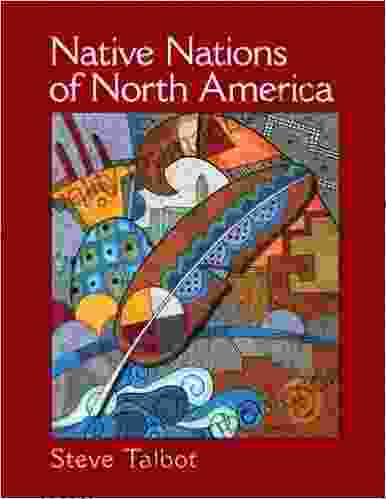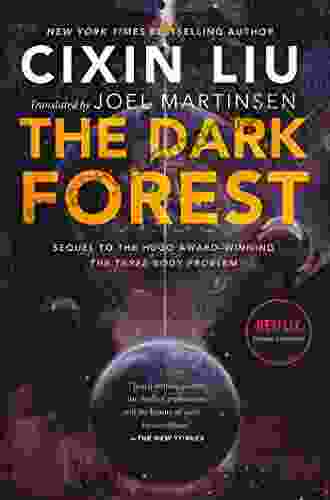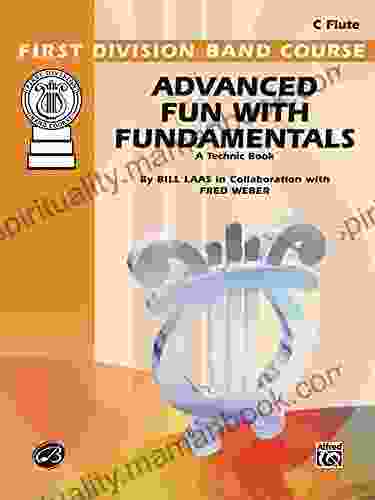Teaching Vocabulary: The Writing Teacher's Paramount Role in Expanding Students' Linguistic Horizons

5 out of 5
| Language | : | English |
| File size | : | 766 KB |
| Text-to-Speech | : | Enabled |
| Screen Reader | : | Supported |
| Enhanced typesetting | : | Enabled |
| Word Wise | : | Enabled |
| Print length | : | 63 pages |
In the tapestry of education, the teaching of vocabulary stands as a vibrant thread, inextricably interwoven with the intricate fabric of language development and writing proficiency. As writing teachers, we hold a profound responsibility to nurture the growth of our students' vocabularies, empowering them to navigate the complexities of language with confidence and precision.
This article will delve into the multifaceted role of writing teachers in fostering vocabulary development, exploring pedagogical strategies, assessment techniques, and collaborative approaches that can ignite a passion for words and unlock the vast potential of language within our classrooms.
Pedagogical Strategies for Vocabulary Instruction
Effective vocabulary instruction transcends rote memorization, engaging students in meaningful and context-rich experiences that deepen their understanding and retention of new words.
- Explicit Instruction: Introduce new words directly, providing clear definitions, pronunciations, and examples. Utilize word walls, flashcards, and online resources to reinforce learning.
- Incidental Learning: Expose students to new words through authentic texts, discussions, and activities. Encourage students to pay attention to unfamiliar words and seek their meanings in context.
- Word Study: Engage students in playful exploration of words, analyzing their structure, etymology, and relationships to other words. Encourage students to create word maps, participate in root word studies, and explore the nuances of synonyms and antonyms.
- Interactive Games and Activities: Transform vocabulary learning into an enjoyable and engaging experience. Incorporate games like Word Bingo, Charades, and Pictionary to foster teamwork and stimulate memory.
- Technology Integration: Utilize educational software, apps, and online games to supplement vocabulary instruction. Technology can provide interactive and personalized learning experiences that enhance engagement and reinforce word retention.
Assessment Techniques for Vocabulary Growth
Assessment is an integral component of vocabulary instruction, providing valuable insights into students' understanding and progress. By regularly assessing students' vocabulary, we can tailor instruction to meet their individual needs and track their growth over time.
- Vocabulary Quizzes: Conduct regular quizzes to assess students' knowledge of new words and their ability to use them in context.
- Writing Samples: Analyze students' writing to identify areas where they struggle with vocabulary and provide targeted interventions. Encourage students to use new words in their writing to demonstrate their understanding.
- Word Journals: Ask students to keep word journals where they record new words they encounter, along with their definitions and examples. This provides a valuable record of their vocabulary acquisition and allows for self-reflection.
- Student Portfolios: Collect student work related to vocabulary, such as quizzes, writing samples, and word journals. Portfolios provide a comprehensive record of students' progress and can be used for assessment and feedback.
- Technology-Enhanced Assessment: Utilize online platforms and apps for formative and summative assessment. These tools can provide data on students' vocabulary knowledge and identify areas for improvement.
Collaborative Approaches to Vocabulary Instruction
Collaboration is an essential pillar of effective vocabulary instruction. By partnering with colleagues, parents, and the community, we can create a supportive learning environment that fosters vocabulary growth and nurtures a love of language.
- Interdisciplinary Collaboration: Collaborate with teachers from other disciplines to integrate vocabulary instruction into science, social studies, and math lessons.
- Parent Involvement: Engage parents in their children's vocabulary development by providing resources, sharing strategies, and encouraging home-based vocabulary activities.
- Community Partnerships: Connect with local libraries, museums, and community organizations to provide opportunities for students to engage with language-rich experiences.
- Peer Learning: Foster a culture of peer learning and collaboration by having students work together on vocabulary projects, presentations, and discussions.
- Technology-Mediated Collaboration: Utilize online discussion boards, collaborative word processing tools, and video conferencing to facilitate vocabulary learning across different classrooms and communities.
Empowering Students as Vocabulary Champions
By embracing a multifaceted approach to vocabulary instruction and fostering a collaborative learning environment, writing teachers can empower students to become confident and proficient users of language. As they expand their vocabularies, students develop a deeper appreciation for the power of words and the ability to express themselves with clarity and precision.
Remember, teaching vocabulary is not merely about memorizing lists of words. It is about igniting a passion for language, unlocking the boundless potential of communication, and empowering students to become lifelong learners and articulate voices in the world.
Let us rise to the challenge of fostering vocabulary growth in our students and witness the transformative power of words as they illuminate the path to academic success and personal fulfillment.
5 out of 5
| Language | : | English |
| File size | : | 766 KB |
| Text-to-Speech | : | Enabled |
| Screen Reader | : | Supported |
| Enhanced typesetting | : | Enabled |
| Word Wise | : | Enabled |
| Print length | : | 63 pages |
Do you want to contribute by writing guest posts on this blog?
Please contact us and send us a resume of previous articles that you have written.
 Top Book
Top Book Novel
Novel Fiction
Fiction Nonfiction
Nonfiction Literature
Literature Paperback
Paperback Hardcover
Hardcover E-book
E-book Audiobook
Audiobook Bestseller
Bestseller Classic
Classic Mystery
Mystery Thriller
Thriller Romance
Romance Fantasy
Fantasy Science Fiction
Science Fiction Biography
Biography Memoir
Memoir Autobiography
Autobiography Poetry
Poetry Drama
Drama Historical Fiction
Historical Fiction Self-help
Self-help Young Adult
Young Adult Childrens Books
Childrens Books Graphic Novel
Graphic Novel Anthology
Anthology Series
Series Encyclopedia
Encyclopedia Reference
Reference Guidebook
Guidebook Textbook
Textbook Workbook
Workbook Journal
Journal Diary
Diary Manuscript
Manuscript Folio
Folio Pulp Fiction
Pulp Fiction Short Stories
Short Stories Fairy Tales
Fairy Tales Fables
Fables Mythology
Mythology Philosophy
Philosophy Religion
Religion Spirituality
Spirituality Essays
Essays Critique
Critique Commentary
Commentary Glossary
Glossary Bibliography
Bibliography Index
Index Table of Contents
Table of Contents Preface
Preface Introduction
Introduction Foreword
Foreword Afterword
Afterword Appendices
Appendices Annotations
Annotations Footnotes
Footnotes Epilogue
Epilogue Prologue
Prologue America S Test Kitchen
America S Test Kitchen Ziony Zevit
Ziony Zevit Jean Grainger
Jean Grainger Eric Lawrence Frazier
Eric Lawrence Frazier Fyodor Dostoyevsky
Fyodor Dostoyevsky Pete Hamill
Pete Hamill Scott H Hogan
Scott H Hogan Bruno Carrasco
Bruno Carrasco Annette Kinglock Murray
Annette Kinglock Murray Adrian Henri
Adrian Henri Adrian Onyando
Adrian Onyando Victor Zagal
Victor Zagal Kevin Elko
Kevin Elko Rod Khleif
Rod Khleif C David Benson
C David Benson Jack R Baker
Jack R Baker John Dryden
John Dryden Pietra Rivoli
Pietra Rivoli Steve Talbot
Steve Talbot Sheena Binkley
Sheena Binkley
Light bulbAdvertise smarter! Our strategic ad space ensures maximum exposure. Reserve your spot today!
 Truman CapoteFollow ·10.4k
Truman CapoteFollow ·10.4k Fernando BellFollow ·9k
Fernando BellFollow ·9k Brennan BlairFollow ·14.9k
Brennan BlairFollow ·14.9k Paulo CoelhoFollow ·18.4k
Paulo CoelhoFollow ·18.4k Russell MitchellFollow ·2.3k
Russell MitchellFollow ·2.3k Eli BlairFollow ·4.3k
Eli BlairFollow ·4.3k John GreenFollow ·4.4k
John GreenFollow ·4.4k Mitch FosterFollow ·17.7k
Mitch FosterFollow ·17.7k

 Thomas Powell
Thomas PowellHair Care Essentials for Crochet Braids: A Protective...
Crochet braids are a versatile and...

 Philip Bell
Philip BellNative Nations of North America: A Comprehensive Guide
North America is home to a...

 Jackson Hayes
Jackson HayesCall Me Crazy: My Unique Journey with Green
In the kaleidoscopic tapestry of life, where...

 Graham Blair
Graham BlairUnveiling the Literary Treasures of Michigan: A Journey...
The literary landscape of...
5 out of 5
| Language | : | English |
| File size | : | 766 KB |
| Text-to-Speech | : | Enabled |
| Screen Reader | : | Supported |
| Enhanced typesetting | : | Enabled |
| Word Wise | : | Enabled |
| Print length | : | 63 pages |
















